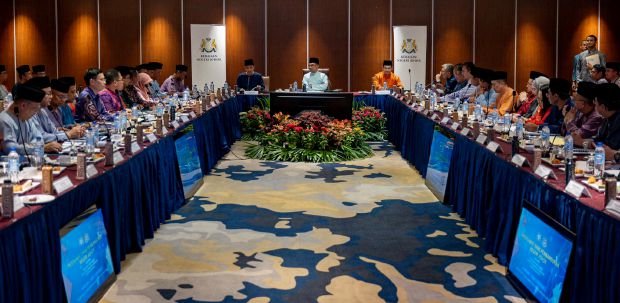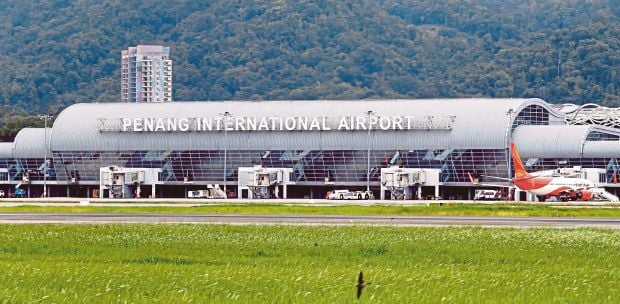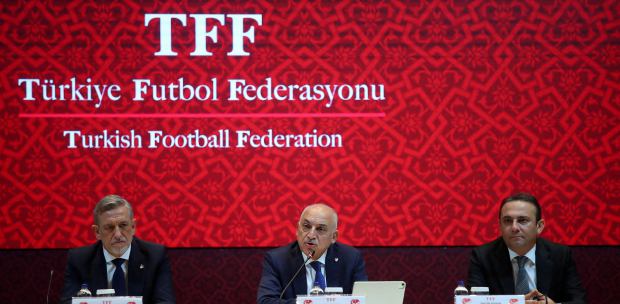FIRST and foremost, this column underlines “Malaysia is good today, tomorrow it is the better Malaysia”.
Lim Guan Eng said a country can only be united if its economic development is inclusive regardless of race and religion.
In his address at the Dewan Rakyat on Oct 11, Lim said the government strives to defend and empower all and not only one particular group.
You might think our government can deliver.
No, there are more than 30 million Malaysians who are presently facing too many difficult challenges that go beyond normal political practices.
This is the reality in our homeland.
A student of Economics 101 obviously understands how a market-based economic system delivers efficiency and satisfaction to every participant.
Both situations are called Pareto optimal.
They are achievable at the same time but Pareto optimal does not guarantee fairness for ensuring the highest state of efficiency and economic welfare in society.
This weakness is correctible in order to get to the desired goal, viz., fairness, equitable, and efficient social economic wellbeing.
Lord John Acton said 170 years ago: “Inequality: the Basis of society. We combined and put things in common to protect the weak against the strong.”
Is this doable in Malaysia? Yes, fiscal federalism is the means.
Malaysia is a federal state where the federal government shares power and responsibility with its states.
Notwithstanding, federalism in fact was and still is practically de facto a centralised government tax system instead of de jure in Malaysia since independence.
Our Federal Constitution specified financial provision for national and state governments but the formation and the execution of fiscal policy was and still is basically centrally controlled by national government.
The trade-off between efficiency and fairness is not inevitable. The conflict is avoidable if the conditions for efficiency and fairness are harmonised.
Pareto efficiency and fairness are desirable on one hand, and both are mutually inclusive and mutually reinforcing on the other hand.
The present state of affairs, with a centralised fiscal policy, still has not delivered the desirable wellbeing in terms of Pareto efficiency and fairness for every citizen.
Fiscal federalism is contentious between de facto advocates and de jure proponents.
Ceteris paribus, the navigation of ethical, political, and a broader scope of social issues landscape is certainly a herculean task.
But constitutionally and also for enhancing the identity of the reborn homeland, the government and rakyat in Malaysia Baru are in need of a fiscal system that can foster their endeavours in securing not only desirable but also a higher welfare standard based on efficiency, fairness, effectiveness, equity, and social justice.
The scope of fiscal federalism is not necessarily definite. It varies across federal states.
The centralisation ratio in our country was 8.70 per cent and 7.42 per cent in 2016 and 2017, respectively.
This is the ratio of the national government’s and state governments’ expenditure except transfers made to other governmental units.
France, Canada and the US were 81 per cent, 43 per cent, and 48 per cent, respectively, in the early 2000s.
The degree of centralisation in our homeland is high because the practice was repeated every year by the previous coalition government — the most ardent advocate of centralisation for decades.
The record of fiscal policy demonstrates Malaysia has a highly centralised fiscal system.
This problem was created in spite of the federalism (guaranteed) by the Federal Constitution since the formation of Malaysia.
Hence in looking forward to consolidating the reborn Malaysia, the urgent need to transform to a clear and a decentralised fiscal federalism in the long horizon is undoubtedly of paramount importance to achieve the sustained process of an efficient, fair, equitable and just social economic progress.
The insistence on centralising economic responsibility was and is still entrenched by a small group of “elites” who are overwhelmingly self-interested in their own personal profit and political power.
This is the cancer. The crucial takeaway for every citizen rightfully is: How to divide economic responsibility between national and state governments that can provide a higher level of efficiency and fairness?
The answer ought to encompass, at least, a socially just initiative in income redistribution that places resolute focus on cooperative or supportive relationship in the allocation of fiscal resources from the national government to every state authority that consolidates Pareto efficiency and fairness for every Malaysian.
The answer is indeed the key to opening the door to fiscal federalism that symbolises the right of citizens in the Federation of Malaysia under the Federal Constitution, viz, government of, government by and government for the people.
These are the three principles of the people.
The constitutional right is unshakeable and they ought to become the most important foundation of Malaysia Baru in navigating a vast ocean where sometimes even a changeable weather influences the high winds and waves along with huge storms that are predictable but to a certain extent the degree of uncertainty varies from time to time.
Looking forward, even though the sail is rough in the voyage, the mindset of every citizen still desires to arrive at the destiny where fiscal federalism — based on the three principles of the people — is in place for the long lasting political, economic and social progress engraved in pluralistic Malaysia.
The writer is professor at Reitaku University, Tokyo, Japan, since 1983 teaching Southeast Asia studies, international economics and integration, development economics, and Asian economy
The views expressed in this article are the author’s own and do not necessarily reflect those of the New Straits Times






